Carol He is a 32-year-old Chinese female, who has been living in America for 25 years. She is the boss of a “fashion company.” After deducting all costs, including wages, production cost, operation cost and all the other necessary spendings, the “company” makes about $150,000 net profit every month – and mounting. There’re 12 people in her “company” now, including her. You may be wondering: how can such a small company earn so much? Well, what I haven’t told you is, Carol’s “fashion company” sells faked luxuries. From my interview with Carol, I knew that if we only consider about profitability, this is indeed a great business.
Carol started selling faked goods 8 years ago. Back in 2006, she just graduated from university and found her first job in an airline company. When working there, she happened to get to know a Chinese handbag factory manager, Wang, who told Carol that his factory manufactures faked Chanel Classic Flap handbags, and that they’re exactly the same as the authentic ones, but with a much lower price. Carol told her friend. Her friend bought one and said to Carol that she walked in the Chanel store with the counterfeit, and no one recognized it. Since then, more and more people asked Carol for pictures of the bags by email or cell phone. Carol then created an account on MySpace to upload photos of newly manufactured handbags. People ordered by commenting or sending messages to her. By the end of 2007, Carol was able to sell about 10 bags every week, and earned around $3,000 monthly. At that time, the price of medium Chanel Classic Flap in lambskin was $2150, and the faked one was $300.
At first, Carol sold counterfeits just to make some extra money. “However,” she said, “soon I had a feeling that I was the only one in this business, and people were all asking me for bags.” According to her, most of her customers were Asians at the very beginning. But in the first half year in 2008, the number of people contacting her suddenly increased dramatically. In August 2008, she sold 128 Chanel Classic Flap handbags in different sizes and colors to customers all around the U.S., and her customers expanded from only Asian to Hispanic, Caucasian, Africa American, etc.
I asked her if she think the boost in her business has something to do with the Great Recession in 2008, she smiled and said:” Well, I don’t know much about economy, but thank god recessions never happened to me.” Carol decided to focus on the business and quitted her job at the end of 2008. The faked Chanel sold so well that she had to quit her job to take care of the business – she even hired an assistant to help her with customer service.
Though the Great Recession didn’t impact Carol’s business directly, there was indeed a huge change – which she didn’t realize till now – that was emerging in 2008. “I remember it was in that year that a large number of competitors began to appear in the U.S. and China out of a sudden, to the extent that in 2009, the U.S. Customs had been very strict about import packages from China for quite a while, even non-business ones” – and that was when Carol officially started her “company.”
Carol went back to China in August 2009, and stayed there for six months. During that time, she realized that there was much more demand for faked luxuries in China than in America. “There were so many people, they had so much money, yet they didn’t know where to spend.” At that time, Chinese economy was developing rapidly and led to dramatic rise in the population of millionaires. Luxury brands noticed the potential in China and were all trying to take a place in the market. Together with the emergence of various kinds of social media, such as Weibo – the Chinese Twitter – people got to know more brands. More importantly, they had the ability to make a purchase.
The number of luxury products is always limited – the more “luxurious” it is, the more limited it will be. Therefore, even if people have the money to buy a product, they’re not necessarily getting it. “So I wondered, what if I can sell various brands’ counterfeits that are identical as the authentic ones? Besides, the number of people who can’t afford to buy luxuries but still want one is always larger than that of people who can arbitrarily buy whatever they like.” Therefore, Carol met Wang again in China, and negotiated with him about expanding their production from only Chanel flap bags to all famous international boutique brands, such as Hermes, Christian Dior, Bottega Venetta, Celine, and so on. Carol buys authentic products from stores in America and sends them back to China, and Wang’s factory will take care of disassembling and dissecting them, in order to make identical counterfeits.
Carol decided to change the way she sells as well. She still took care of the American market, but she became a supplier in China. As I’ve mentioned, there’re 11 people working for her directly. One of them is in Los Angeles helping Carol. Four are in charge of recruiting “sales associates (SAs)” in China – these “SAs” do not work for Carol; they simply purchase from her and sell in their ways. These four people in Carol’s group are responsible for communicating with SAs and making orders. Each of the four people has a staff who takes care of sending products to SAs. Of the rest 2 people, one bookkeeper, and one who transports goods from Wang’s factory to Carol’s warehouses in China.
“We have 2 major problems now,” Carol said, “The first is that we’re short of staff.” Each SA recruiters now has to take care of more than 30 SAs, which is too many for them. Therefore, Carol might nominate one SA recruiter as the team leader, and he will be in charge of keeping necessary staff on his team. “The second one is more crucial – competitors are getting stronger.” Carol told me she didn’t feel any pressure competing with others even just a year before. But now, some “companies” are targeting higher quality, some lower price, while Carol’s marketing strategy has no obvious feature except for the mature distribution system. “Since I have a relatively large business in this field, I’m wondering segmenting the SA recruiters into different lines. For example, some recruits SAs whose customers are looking for better styles, others can be about lower price, rare products, etc.” Carol is also considering creating a new line exclusively for Hermes, since it’s the most profitable products that many people – from normal consumers to resellers who claim to sell authentic goods – are looking for.
Speaking of Hermes, Carol laughed and said, “If I know anything about economy, it should be that scarcity prints money, and Hermes is the best example.”
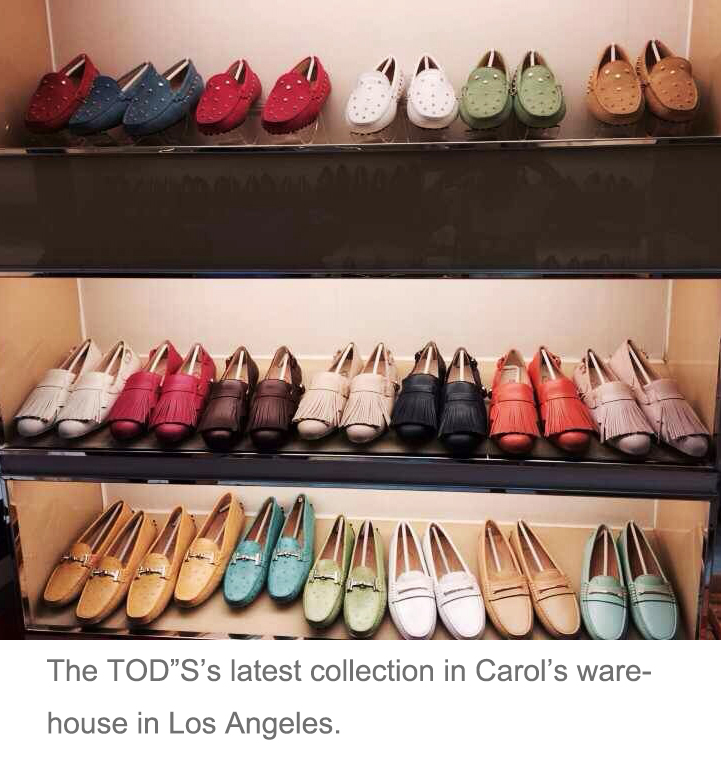

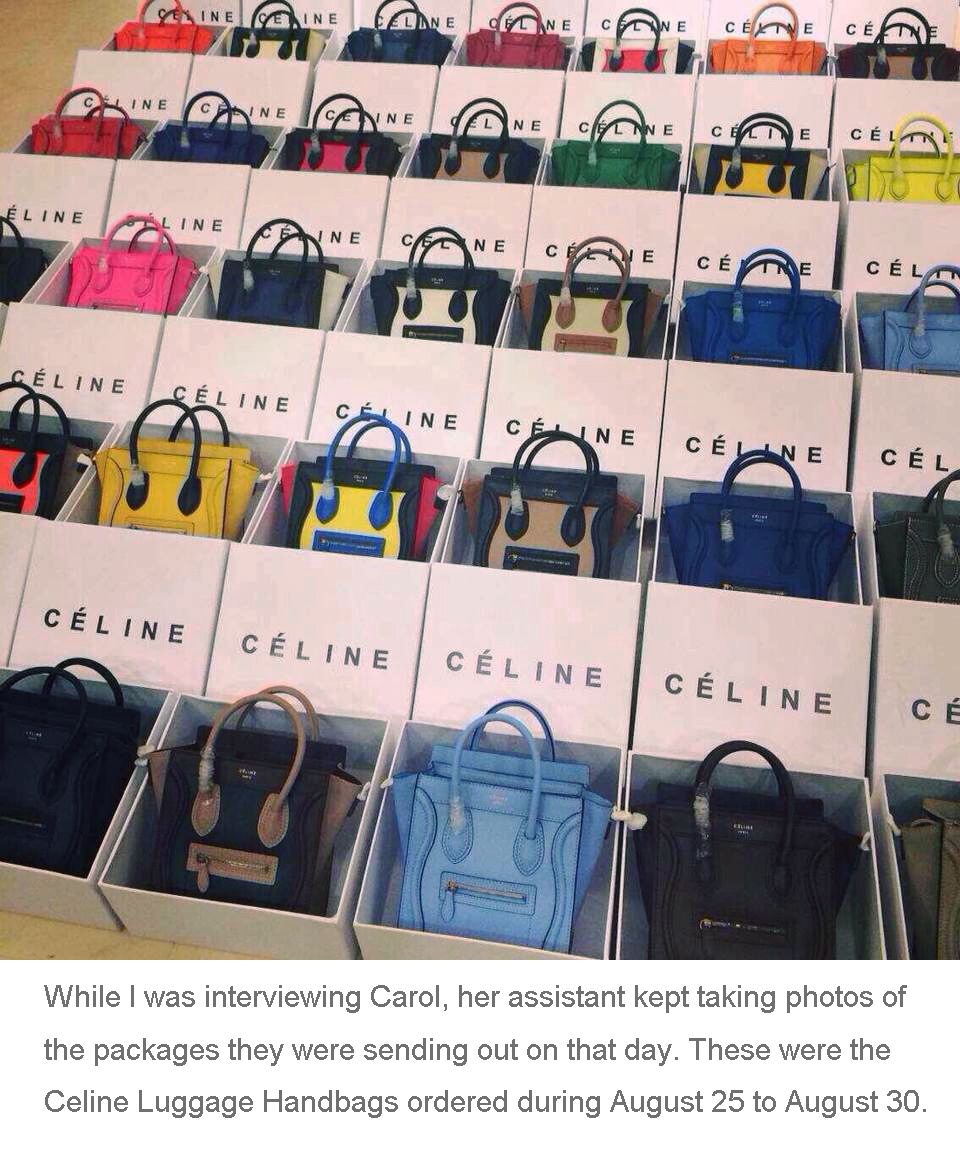
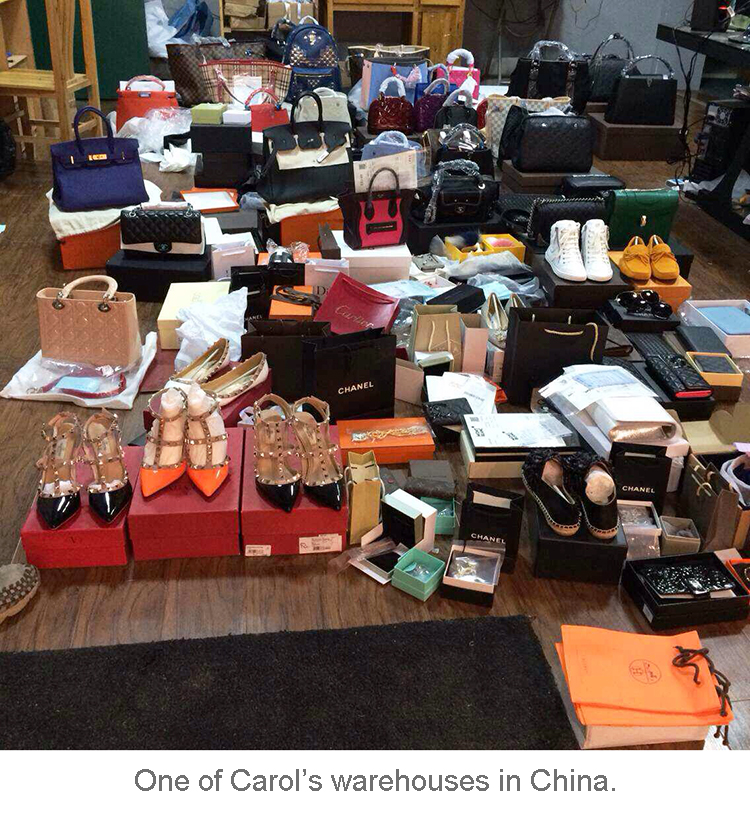
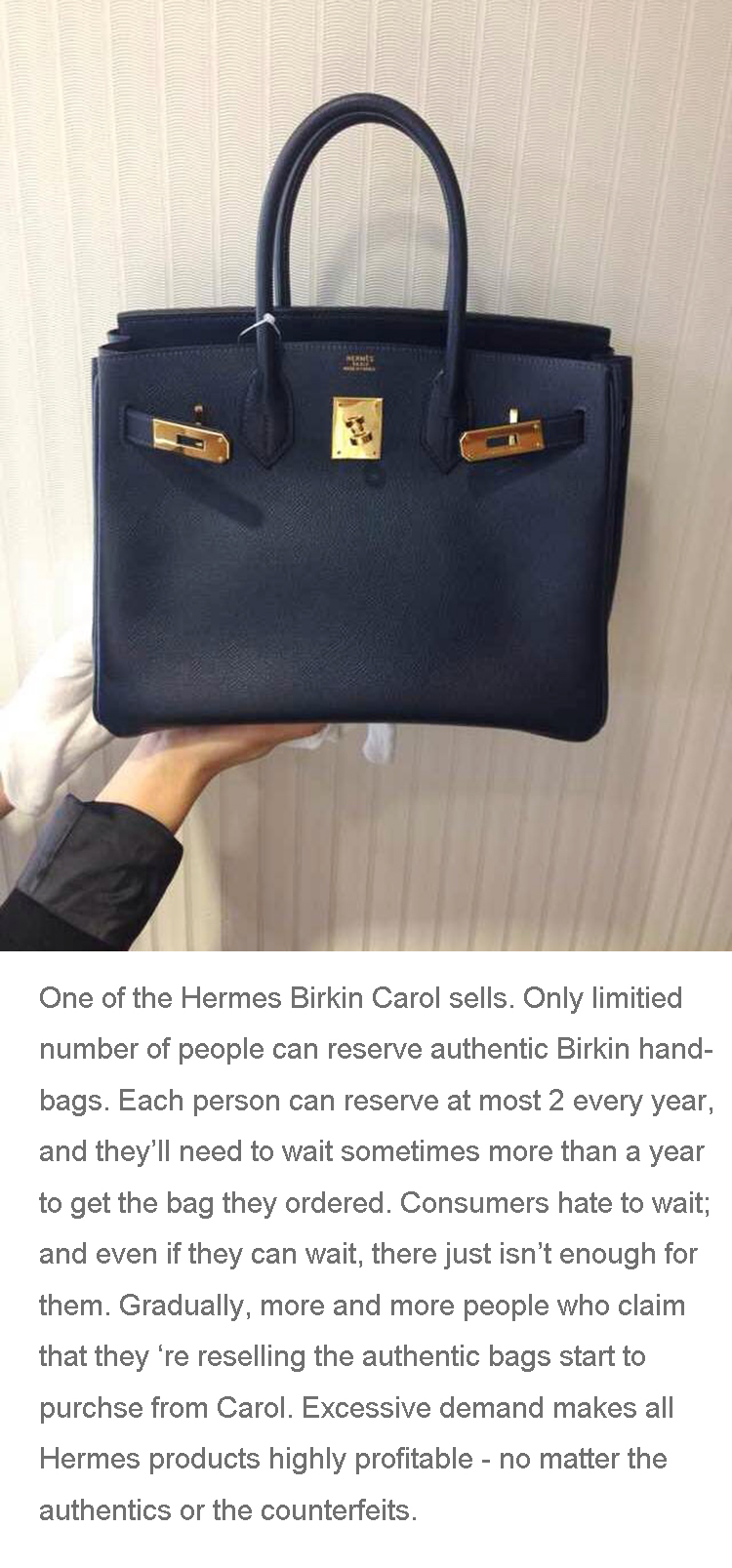
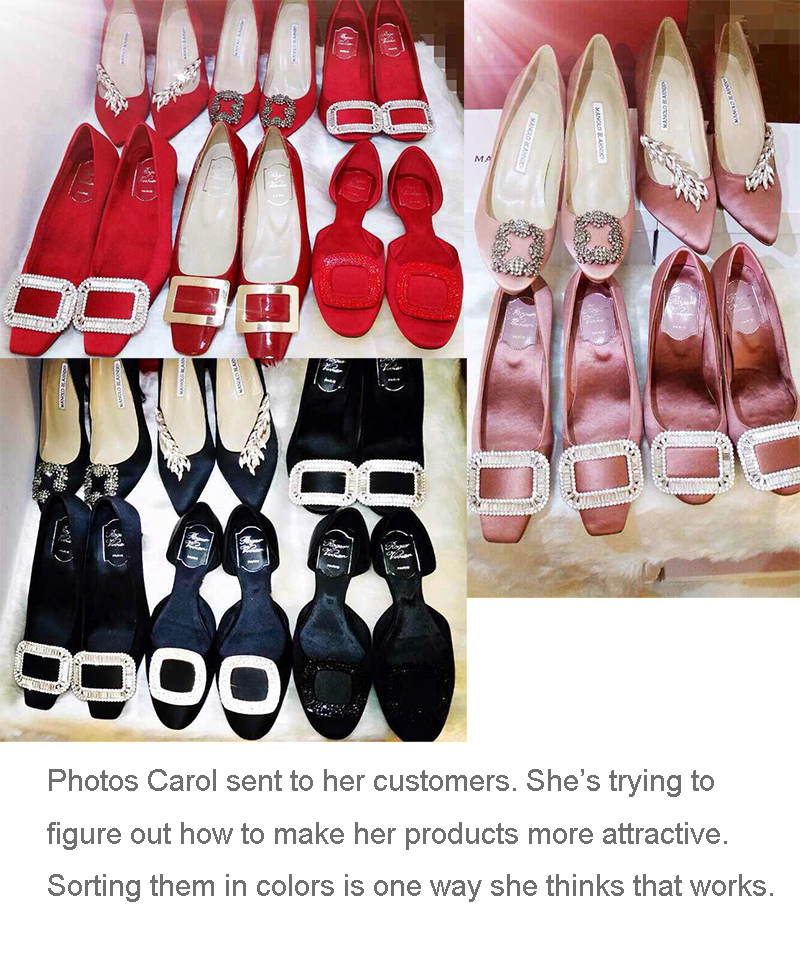

Leave a Reply
You must be logged in to post a comment.